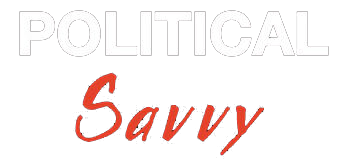Political Savvy Research Findings
Abstract: Investigations into Organizational Politics: 1974-2006
In total ~11,000 people have been subjects. The major focus is on its nature, structure, and dynamics, particularly the personal success attributes related to dealing with politics. Other themes focused upon the intersection of organizational politics and leadership, effects of politics on innovation and systemic sources of political behavior.
The heart of these investigations was two key organizational studies which when combined contained ~ 6900 subjects in 9 organizations across multiple industries. Sponsors in the organizations aimed at creating a subject pool representing a microcosm of their company.
Each core study had, at minimum, the following elements: a.) subjects nominated by co-workers, b.) multi rater criteria: each subject had at least three raters who knew the subject, c.) interviews of subjects and raters, d.) internal personnel data: e.g., demographics, performance, and promotion data were linked to subject interview data, e.) dialogue data: compiled after subjects received feedback of the study results, and f.) longitudinal data: biannual follow ups for up to twenty years. Additional sources of subjects resulted from an intervention derived from the two core studies.
The major findings of these two core studies related to the definition, structure, sources, levels, and personal attributes in different structural groupings. The somewhat unexpected definition that emerged was asymmetrical in terms of positive and negative politics.
The major structural groupings for subjects that emerged were the ‘avoiding politics’ group: ~65-80% (this group had three discernable subgroups),‘negative politics’ group: ~15-25% and‘positive politics’ group: ~5-10% of subjects. While people move in and out of the groups. The group structure remained fairly stable.
Main attributes of each group were compiled in categories of mindset, behaviors, and success factors. The most significant mindset difference was the ‘rational systems’ view of the avoidance group and the ‘human systems’ view of the two active political groups.
There was also a major mindset difference between the two active political groups. There was the win-lose, non ethical, upward focus, self interest, competitive, personal gain mindset of the negative politics group, versus the win-win, ethical, organization focus, enlightened self interest, collaborative, best interests of the business mindset of the positive politics group.
In terms of behavioral differences, major ones included the high networking and constant small risking taking of the positive politics group versus the relatively low networking and risk avoidance of both other groups.
The positive politics group had the higher innovation success rates and higher success factor indicators in terms of performance, and promotion. They were more likely to be viewed as leaders than the other two groups.
There were not any major distinguishing factors between the positive politics group and the avoidance group in terms of personality, interpersonal skill, and intelligence. Positive politics seemed to be an ability possessed by most people.
Negative politics did seem to involve an interpersonal skill in terms of manipulative skills such as of impression management in influencing both how they were perceived and how potential rivals were perceived.
Several systemic sources giving rise to organization politics emerged. The most embedded was internal competition resulting from functional or divisional sub optimization.
The common practice of allocating goals when resources and highly valued rewards are scarce was seen as the key impetus for the sub optimization and resulting competition. Other systematic sources included generational dynamics and cultural or informal organization misalignment with the official hierarchy.
The dominant rational systems paradigm operating as a rational meritocracy is both expected by employees and supported by the organization. ’Officially’ politics is considered dysfunctional and in most organizations doesn’t officially exist. Yet, the practical limitations of the rational systems paradigm seemed in ways unintended to be a major factor in creating the existence, structure, sources, and dynamics of organizational politics.
Given the unanticipated finding that most people already seemed to possess the basic ability to practice positive politics but didn’t use it, an intervention was crafted to embody the key findings of these investigations. It was tested with over 10,000 people; ~3200 of these participated in follow up impact studies.
Results indicate that ~ 70% of avoidance group members shifted toward the positive politics mindset with that number declining to where it stabilized at ~30% after about five years.
Based on the results of these investigations, a theory of organizational politics is proposed and is in a separate document. It ends with a more functional view of organizational politics and the steps that organizations can take to attain it.
